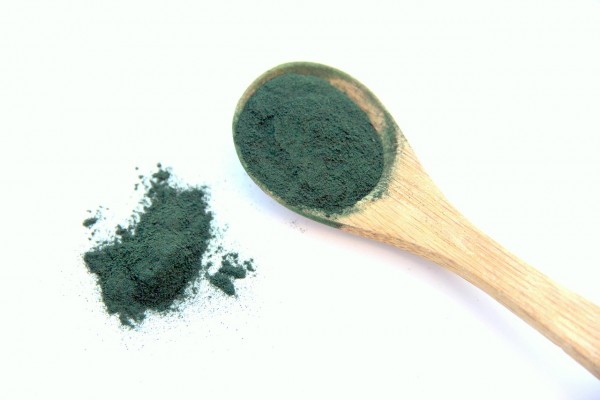5 Reasons You Should Include Spirulina in Your Regular Diet
Over the years, spirulina has gained popularity for its effectiveness specifically in weight loss. A lot of people take it as a supplement, along with regular exercise, to lose unwanted fats.
Spirulina is a blue-green microalga that you can find in saltwater and freshwater. Reports say it was "once used by the Aztecs" and now being mixed, specifically into shakes, smoothies, and juices.
Weight loss is not the only benefit you can get from spirulina. According to registered dietitian-nutritionist Nicole DeMasi, MS, RDN CDCES, it has a lot of health benefits that range from "high-density nutrient profile to its immune-boosting properties."
Here are 5 of the many great things you can get from spirulina. Take them as tips too, to incorporate into your regular diet.
ALSO READ: Research Shows Link Between Flu and Pneumonia Vaccines and Alzheimer's Disease

Phycocyanin, the component that makes spirulina colored in unique blue, is the major anti-inflammatory component in the powder.
1. Adds a Boost of Protein
Spirulina is particularly effective for vegetarians and vegans who are looking to add into their diet a little boost of protein.
Why? Simply because spirulina is composed of about 60 percent protein. Just one tablespoon of dried spirulina contains 4.02 grams of protein.
2. Contains Anti-Inflammatory Properties
Phycocyanin, the component that makes spirulina colored in unique blue, is the major anti-inflammatory component in the powder, according to Detroit, Michigan-based registered dietitian-nutritionist Bansari Acharya, RDN.
A small 2008 study in Koreans whose age ranges from 6o to 87 years showed that those who took eight grams of spirulina every day for 16 consecutive weeks reported a substantial decrease in IL-6 concentration, a pro-inflammatory blood marker than those in the placebo group.
Inflammation is the natural reaction of the body to infection and typically resolves when the impaired cells get healed.
Nonetheless, chronic inflammation may result in pain, swelling, and redness because the inflammation that impairs healthy tissues.
Furthermore, inflammation is linked to diseases like rheumatoid arthritis and Crohn's disease. Some studies indicate, "Anti-inflammatories can contribute to managing pain and discomfort in the body."
DON'T MISS THIS: Researchers Identify New Cause of Age-Related Hearing Loss
3. Treats Some Allergy Cases
Spirulina may help treat some common allergies. A study conducted in 2008 found that the green substance substantially reduced negative side effects linked to allergic rhinitis, commonly known as fever or seasonal allergies.
Among the study's participants, those who consumed spirulina were seen with reduced symptoms like "nasal discharge and congestion, itching and sneezing" than those belonging to the placebo group.
4. Contains Anti-Cancer Properties
Some studies have suggested that spirulina contains anti-cancer properties. Studies in animals specify that it can lessen the occurrence of cancer and the size of the tumor.
The effects of spirulina on oral cancer or cancer of the mouth have reportedly been well investigated. One study investigated more than 80 individuals from India who had precancerous lesions known as "oral submucous fibrosis" or OSMF in the mouth.
Among the people who were given a gram of spirulina each day for one year, 45 percent saw the disappearance of their lesions compared to just seven percent of the control group respondents.
When they stopped their intake of spirulina, almost 50 percent of them had developed lesions the next year.
In a separate investigation of 40 people who had OSMF lesions, one gram of spirulina every day resulted in greater improvement in symptoms of OSMF compared to the intake of the Pentoxyfiline drug.
5. Helps Manage Diabetes
For those with type 2 diabetes, spirulina may have some benefits. In a small study in 2001, study authors divided respondents with type 2 diabetes into two groups, providing them with one to two grams of spirulina every day for two months, and the other, a placebo.
Individuals who were given the supplement were found to have considerably decreased A1C levels, contributing to the long-term regulation of glucose levels.
IN CASE YOU MISSED IT: The Smallest Imaging Device of the World Can Help Identify Causes of Heart Disease
Check out more news and information on Spirulina on MD News Daily.
Oct 24, 2020 05:00 AM EDT





